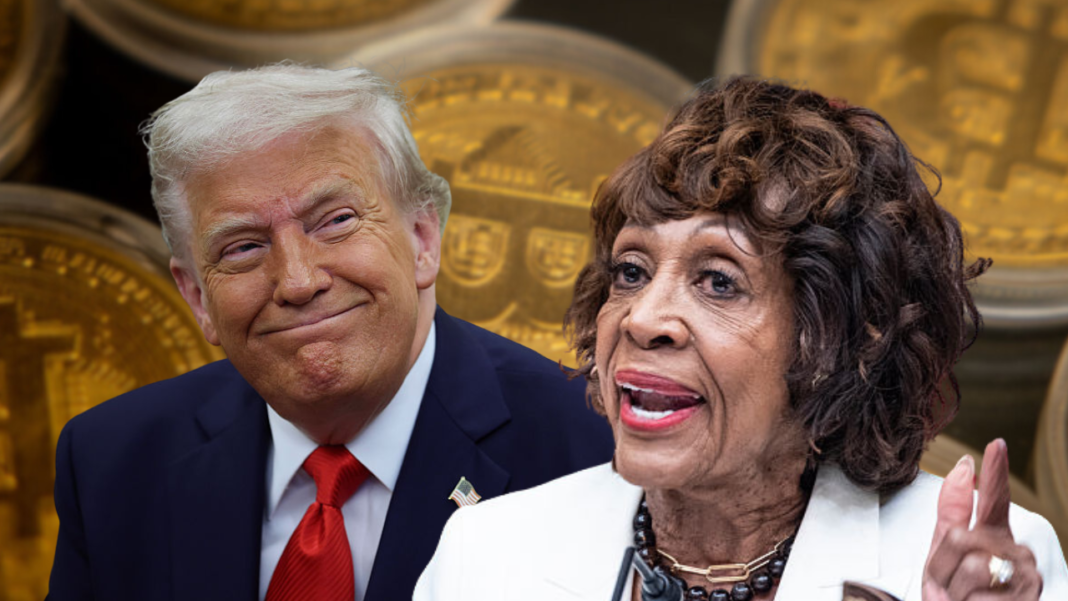Maxine Waters Calls Out Trump’s Pardon of Binance Founder Changpeng Zhao
U.S. Representative Maxine Waters, a prominent voice in California’s congressional delegation, has made headlines once again with her outspoken criticism of President Trump’s recent pardon of Changpeng Zhao (CZ), the founder of Binance, the world’s largest cryptocurrency exchange. This decision has ignited a renewed debate over crypto governance and accountability in Washington.
The Background of the Pardon
Changpeng Zhao, often referred to as CZ in the crypto community, pleaded guilty in 2023 to violating U.S. money laundering laws, resulting in a four-month prison sentence. His case raised significant concerns about the intersection of financial regulations and the rampant growth of the cryptocurrency market. Waters wasted no time in addressing the implications of Trump’s pardoning of a figure involved in such a high-profile legal controversy.
In a statement following the pardon, Waters didn’t hold back. She labeled the move as “appalling, but unsurprising,” characterizing it as a “favor” to a “crypto criminal.” Waters, who serves as the ranking member of the House Financial Services Committee, underscored the serious charges against Zhao, which included facilitating transactions linked to child abusers and drug dealers.
Allegations of Corruption
Waters was particularly vocal about the perceived motivations behind the pardon, asserting that CZ had spent significant time courting Trump and his family while simultaneously funneling vast sums into Trump’s private cryptocurrency venture, World Liberty Financial. She argued that the pardon represented a clear instance of “pay-to-play corruption,” fitting within a broader pattern of self-interest and loyalty to the corrupt rather than to American families in need.
In her statement, Waters emphasized, “Let’s be clear about why this happened,” showcasing her frustration with not only the pardon but what she sees as an overarching trend of corruption within Trump’s dealings. This reliance on questionable alliances and financial dealings raises critical questions about ethics in governance, especially regarding influential figures in emerging industries like cryptocurrency.
The White House’s Defense
In response to the backlash, the White House defended the pardon, framing it as an end to what they described as “the Biden Administration’s war on crypto.” Press Secretary Karoline Levitt remarked that the action symbolizes a shift in the administration’s approach to the digital currency landscape, positioning it as more supportive of innovation.
In a tweet following the confirmation of his pardon, Zhao expressed gratitude to Trump, stating he was “deeply grateful” for the pardon and affirmed his commitment to helping make America the “Capital of Crypto,” thus attempting to reassure stakeholders in the cryptocurrency space.
Waters’ Broader Concerns
Waters has been vocal about her concerns surrounding the governance of cryptocurrency, particularly since the passage of the GENIUS Act, along with the CLARITY Act and the CBDC Anti-Surveillance State Act by the U.S. House of Representatives earlier this year. She has characterized these bills as dangerous invitations for Trump to perpetuate a corrupt environment in the crypto sphere.
According to Waters, these legislative measures fail to protect consumers or enhance transparency. Instead, she insists they legitimize a platform for corrupt dealings, allowing figures like Trump to exploit the unregulated nature of cryptocurrency for their financial benefit.
Ongoing Political Climate
As the U.S. grapples with a looming government shutdown, Waters has taken to various media outlets to voice her criticism of Republican leaders and the Trump administration’s role in the impasse. Partnering with TMZ’s Harvey Levin, she advocated for a movement to hold congressional leaders accountable, should they fail to reach a compromise.
Waters blamed Republican leaders for their inaction, claiming that Trump’s control over the party’s direction stymies productive negotiations. Her call for accountability underscores a growing frustration among Democrats regarding the current political environment, particularly concerning financial ethics and regulation.
Conclusion
Maxine Waters’ outspoken critique of Trump’s pardon of Changpeng Zhao highlights ongoing tensions within U.S. governance surrounding cryptocurrency and regulatory accountability. Her focus on the intertwining of political maneuvers and financial ethics sheds light on broader issues within the crypto landscape as America grapples with its future direction in the digital economy.



